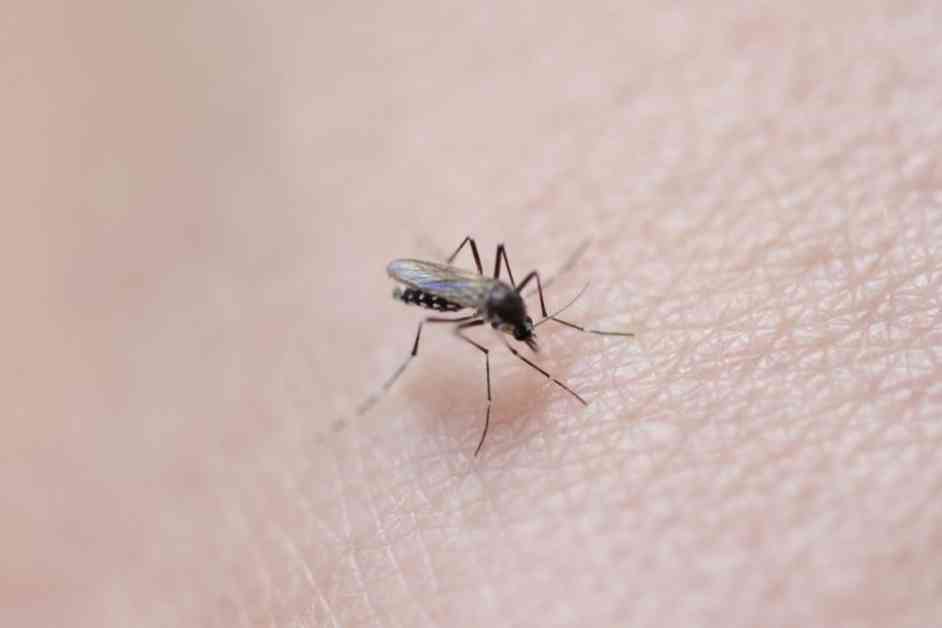Public health France warns Normans about cases of dengue in the region. At the beginning of summer, 51 cases have been reported compared to 7 at the same time in 2023.
This is a significant and worrying increase: imported cases of dengue are on the rise in Normandy. In July 2023, seven cases were recorded compared to 51 to date. Public Health France is enhancing its surveillance. It specifies that no cases of chikungunya and Zika have been reported.
The majority of cases are returning from Martinique or Guadeloupe (62.3%), where dengue outbreaks are ongoing.
Dengue is an infection that mainly occurs in tropical and subtropical areas, but it is also present in temperate zones, including Europe, including metropolitan France where some transmission episodes have been identified in several metropolitan departments.
In 2018, the tiger mosquito was established and active in 51 departments (out of 96 metropolitan departments).
Dengue is an infectious disease caused by an arbovirus: the dengue virus. This virus is transmitted by mosquitoes of the tiger mosquito genus.
Several characteristics distinguish Aedes albopictus (the Latin name of the tiger mosquito) from its other counterparts. Firstly, its appearance: black and white stripes cover its body and legs. A long white line crosses its thorax.
Three other characteristics are also striking: it bites during the day, especially in the early and late afternoon, it is silent, and it measures, on average, five millimeters. It is generally smaller than its counterparts, an advantage for proliferation.
These mosquitoes mainly develop in urban areas and move little during their lifespan. Females lay their eggs in stagnant water, necessary for larval development: pots, saucers, used tires, improperly emptied gutters, various waste containing stagnant water, but also tree hollows and all plants that can retain water (bamboo, etc.).
The main breeding grounds for these mosquitoes are created by humans.
During a bite from an infected person, the mosquito takes the virus from the person’s blood. The virus then multiplies in the mosquito for about 10 days.
The mosquito can then, during another bite, transmit the virus and infect a new person.
The virus can, more rarely, be transmitted through transfusion or transplantation (of organs or cells).
While the disease is asymptomatic in the majority of cases, the usual form is characterized by a sudden fever associated with pain and a rash. In rare cases, serious and sometimes fatal complications can occur.
Dengue is asymptomatic in 50 to 90% of cases (percentage varies depending on the epidemics). For the 50 to 10% of infected people who show symptoms, the incubation period is on average four to seven days (but can range from 3 to 14 days).
• The «classic» form is characterized by a high fever. It is often accompanied by chills, headaches, eye pain, nausea, vomiting, joint and muscle pain, and, inconsistently, a rash around the fifth day of symptoms. The evolution is usually favorable after a few days.
• Severe form (or severe dengue) can occur in less than 5% to 1% of symptomatic cases (WHO 2009). It is characterized by an increase in vascular permeability that can lead to shock and hemorrhage that can be life-threatening.
The treatment of dengue is symptomatic. There is no specific antiviral treatment. Aspirin and non-steroidal anti-inflammatory drugs are contraindicated due to the risk of bleeding.
It is important for residents in Normandy to take precautions to avoid mosquito bites, such as using insect repellent, wearing long sleeves and pants, and removing any standing water around their homes where mosquitoes can breed. Additionally, seeking medical attention if experiencing symptoms of dengue is crucial for early diagnosis and treatment. Public awareness and preventive measures are key in controlling the spread of dengue in the region. Stay informed and stay safe!




















